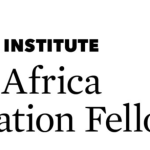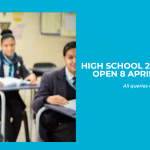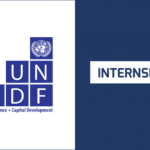Each year, the Berkeley PRIZE Committee selects a topic critical to the discussion of the social art of architecture and poses a Question based on that topic. Full-time undergraduate students enrolled in any architecture degree program or majoring in architecture throughout the world (or teams of two students, one of whom may be from another discipline) are invited to submit a 500-word Essay proposal responding to the Question.
Application Deadline: 1st November 2017
Essay Question:
DESIGNING CIVIC BUILDINGS:
THE ARCHITECT WORKS WITH A TEAM
HOW DO CIVIC BUILDINGS CREATE COMMUNITY?
About the Award: This year’s topic focuses on how civic architecture provides for the health, safety, education, intellectual life and well-being of the community. Decide which of these services interests you the most. Go out into the city in which your school is located with a team member from another academic discipline and find two public buildings that you feel are especially successful for the type of service you have selected. Use these buildings as the basis for your answer to the Question.
In your research, you should particularly think about what exactly it is about the design of these buildings that make them so successful and the ways in which collaboration with other disciplines has contributed to their success. An architect cannot make this happen alone. Some ideas you might want to explore:
- Why exactly is the building important to the community?
- How can/does the design of the buildings enhance their social, political and practical significance for the people it serves?
- Why was the specific site selected for each of the buildings by the city?
- Was there anything special about the design process that contributes to the buildings’ success?
- How do neighbors feel about the buildings? How do the staff feel about the buildings? How do the users feel about the buildings?
- What are the lessons to be learned from these examples that you can apply to future similar civic building projects?
Special Team Requirements This Year: BP2020 requires that undergraduate architecture students team up with another undergraduate student from outside of architecture studies in researching and writing the Proposal and Essay. To do this, you need to identify what kind of information you might need as an architect to help make “your” civic building work and search out students in other disciplines who can become a team member in making this happen. This might include students from programs in:
- Urban Studies, City (and Regional) Planning, or Urban Design;
- The Social Sciences: Anthropology, Economics, Geography, History, Political Science, Sociology, and Psychology, and all of their branches (for instance Social Psychology);
- Human Services; Management;
- Other disciplines for which you and your partner can make a good case for its importance to your research.
You can team with an undergraduate student from your school or another school in the community where you are studying. Long-distance – for instance, internet-based teams – will not be accepted. The issue is to work together, face-to-face, on both the on-site research and writing.
Without specifically identifying yourselves, please add up to 50 words at the beginning of your Proposal as a “Preface” explaining why the two of you have teamed to research this topic and the special value of this association in answering the Question.
Eligibility:
- The competition is open to all current full-time registered students in an undergraduate architecture degree program or undergraduates majoring in architecture in accredited schools of architecture worldwide. Diploma in Architecture students who have not yet completed their Diploma are also eligible.
- Essays must be submitted in English.
- Finalists will be required to provide proof of current registration in the form of copies of actual school transcripts. You are still eligible to compete if you were an undergraduate student on September 15, 2019, but graduate before the awards are scheduled to be given.
Selection Process:
- From the pool of essay proposals received, approximately 25 are selected by the PRIZE Committee as particularly promising. The selected individual students, or student teams, become Semifinalists.
- These Semifinalists are invited to submit a 2,500-word essay, again in English, expanding on their proposals. A group of readers, composed of Committee members and invited colleagues, selects five-to-eight of the best essays and sends these Finalist essays to a jury of international academics and architects to select the winners.
- At the conclusion of the Essay Competition submittals, all Semifinalists are also invited to submit for a BERKELEY PRIZE Travel Fellowship. Details for the Fellowship will be announced in the spring 2020.
Judging Criteria: Judging for the Berkeley Prize essay competition is on a numeric system. The members of the BERKELEY PRIZE Committee are asked to evaluate each essay in terms of the following criteria:
- Does the Proposal address the Question?
- How creative, or creatively developed, is the Proposal?
- Would the Proposal be clear to a broad audience?
- How does the Proposal rank in terms of writing style?
- How socially significant is the Proposal?
- What is the potential for developing this Proposal into a strong essay?
Value of Award: There is a total prize of 35,000USD, minimum 9,000USD first prize. The remaining purse is to be allocated at the discretion of the Jury.
Duration/Timeline of Program:
- 15th September, 2019: Launch of 2020 Berkeley Prize Essay Competition.
- 1st November, 2019: (Stage One) 500-word essay proposal due.
- Mid-December, 2019: Essay Semifinalists announced.
- February 1, 2020: (Stage Two) Essay Semifinalists’ 2,500-word essays due.
- February 8, 2020: Launch of Travel Fellowship Competition for Essay Semifinalists.
- Early-March, 2020: Essay Finalists announced.
- March 12, 2020: Travel Fellowship Entries Due.
- Mid-April, 2020: Essay winners and Travel Fellowship winners Announced
Visit Award Webpage for more details before you apply.









